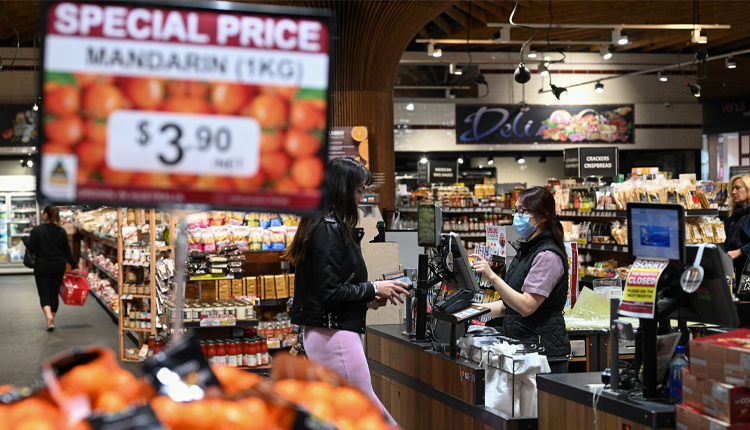Australian consumer price inflation remained at a two-year low in January, defying expectations for an increase and reinforcing the view that interest rates are unlikely to rise further, Reuters reported on Wednesday.
The focus will now shift to February’s release for insights into the Reserve Bank of Australia’s next steps, as the second month of the quarter will provide more data on inflation in the services sector, which has been declining at a slower pace than for goods.
In New Zealand, the Reserve Bank held rates steady at 5.5 per cent and lowered its projections for the future cash rate, signaling a dovish shift and suggesting that further tightening is unlikely.
Australia’s monthly consumer price index (CPI) rose by 3.4 per cent in January, unchanged from December and below market forecasts of 3.6 per cent. The trimmed mean, a key measure of core inflation, increased by 3.8 per cent annually, down from 4.0 per cent in December.
Inflation excluding volatile items and holiday travel slowed to 4.1 per cent from 4.2 per cent. The Australian dollar showed little reaction to the data, trading 0.1 per cent lower at $0.6538, while three-year bond futures held steady at 96.24.
For January alone, CPI fell by 0.3 per cent from the previous month, driven by declines in holiday travel, clothing, and petrol.
Rents grew by 7.4 per cent in January from a year earlier, unchanged from December, indicating that rent inflation may have peaked, while electricity prices rose by a modest 0.8 per cent.
The data for January suggest that price pressures are likely to ease more quickly than the Reserve Bank of Australia is anticipating, leading some analysts to predict a rate cut in August.
The Reserve Bank of Australia has raised interest rates by 425 basis points since May 2022 to a 12-year high of 4.35 per cent, but financial markets are confident that the bank is done tightening.


